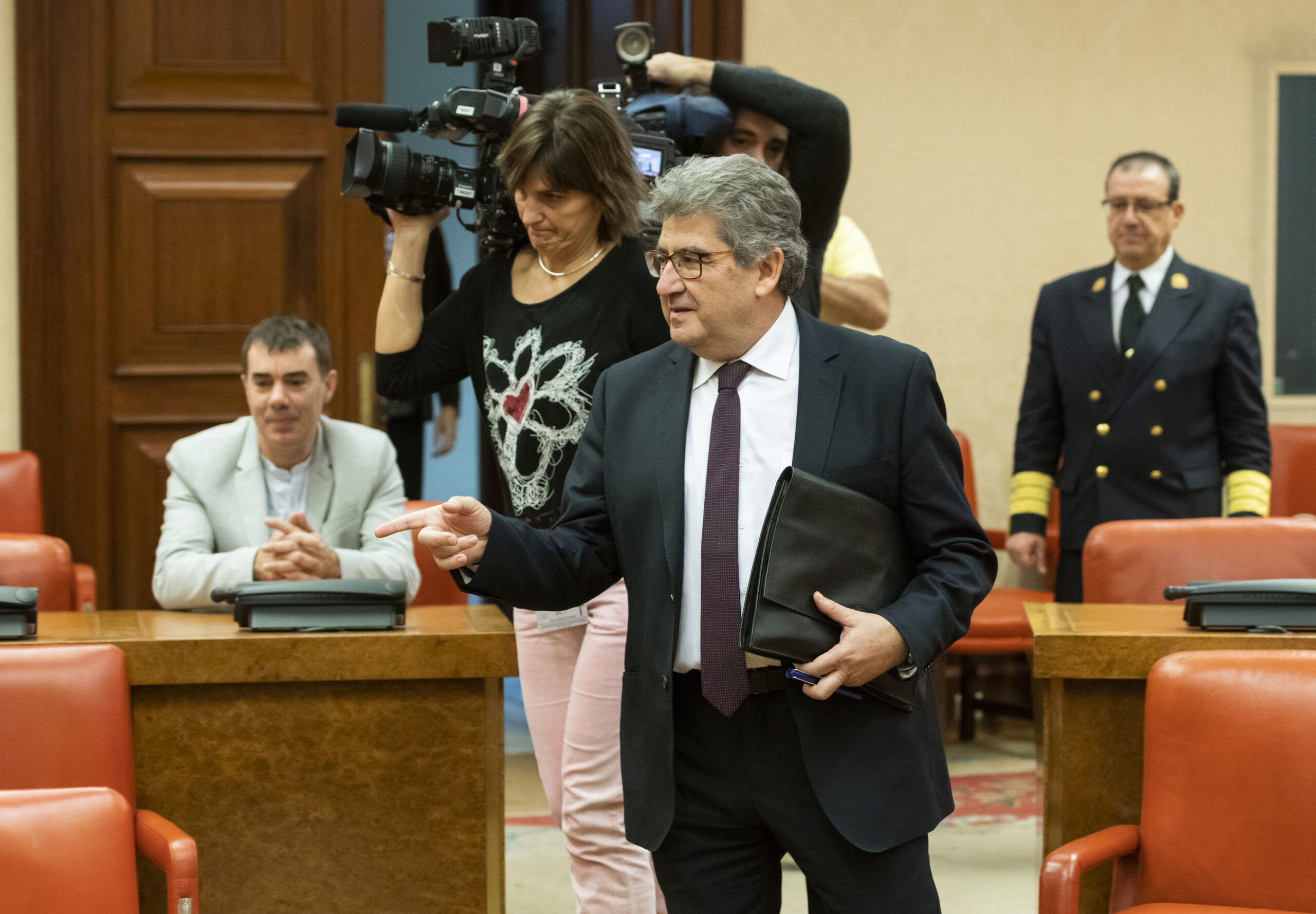The magistrate of the National High Court, José Ricardo de Prada, has opened a new path that could substantially reduce the sentences served by a large number of ETA prisoners. It is about the presentation before the Court of Justice of the European Union (CJEU) of a query that seeks that the prison time spent in a member country can be deducted from the pending compliance in another.
In the case of ETA prisoners, this would mean that the years served in France are taken into account for the time of sentence that is later imposed on them in Spain. This is a very common assumption among prisoners of the terrorist group, who had France as a refuge and who, when arrested there, were serving several years in prison for the crimes of criminal association -equivalent to belonging to a terrorist organization-, illegal possession of weapons and use of illegal documentation.
Years later, with the sentence served, they were handed over to Spain, where new sentences were imposed for the specific attacks. The maximum prison time counter in Spain -30 years in most cases- was reset to zero.
History of the gang with long sentences came to the Supreme Court so that the years in French prisons were subtracted from their three decades of compliance, but the High Court rejected it.
That the preliminary ruling before the CJEU is a way to shorten the sentences of ETA prisoners was evidenced by Judge De Prada himself, in a recent intervention in a Uned course on the execution of terrorism sentences. He regretted that decision of the Supreme Court and explained that in his day he had supported, without success, that the Plenary of the National High Court take the matter to the Luxembourg court, considering that the Spanish regulations could not be in accordance with the European one.
“An attempt was made by some magistrates of the Full Court to take to the CJEU the interpretation of whether the exclusion of the recognition of foreign judgments was compatible with the 2008 framework decision, but the Supreme Court curtailed the debate,” explained de Prada, criticizing the decision of the High Court.
He then added that he has returned to the matter in another way. “The only thing is that my court has submitted a preliminary ruling on this issue,” he said, specifying that it has done so in a matter that is not terrorism, although the European response does have repercussions on ETA prisoners.
The preliminary ruling has been raised in relation to the Philatelic Forum scam, where the main accused was sentenced in Spain and Portugal and who sought compliance to be valid for both countries.
“We asked if it was possible to take into account a foreign sentence in Spain,” De Prada explained as soon as he recalled the case of the former head of ETA Soledad Iparraguirre, Anboto, handed over to Spain in 2019 after serving her sentence in France and who has already begun to comply with those imposed by the Court. In her case, computing the sentence served in France as advocated by De Prada would mean getting rid of 15 years in prison.
In the order in which he sends the query to the CJEU, he states that he detects “the maximum discrepancy between Spanish law and European law” by verifying that in cases like this, “any feasible solution when there are two sentences imposed in convictions of Spanish courts and of the EU that it is necessary to consolidate passes through the necessary recognition and grant identical value to foreign sentences”.
The order for which De Prada is the rapporteur indicates that the solution of fully serving the two sentences “without the possibility of adaptation or any punitive limitation” would collide with “the obligation of proportionality” of the sentences and “compromises fully established community principles, such as the of mutual recognition of judicial resolutions”.
The preliminary ruling, for which De Prada was rapporteur, is pending resolution by Luxembourg. The magistrate’s request that it be processed by the urgent route was rejected by the CJEU. At the moment, the State Attorney, which acts on behalf of the Government, has opposed that interpretation, according to sources from the National Court.
These sources consider that the magistrate’s interpretation will not go ahead. They explain that there are recent rulings that have addressed it -a query from a Polish court resolved in April 2021- and they have rejected it.
The same sources emphasize that the European standard with which the Spanish law would allegedly collide is not directly applicable, because it is a framework decision and not a directive.
Conforms to The Trust Project criteria
















